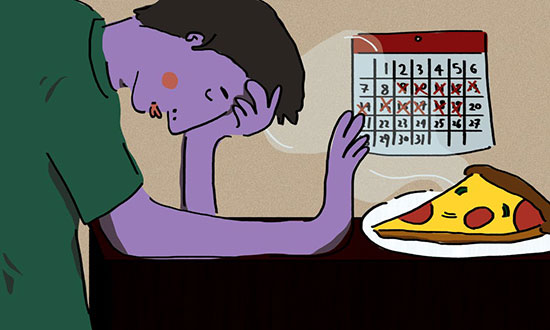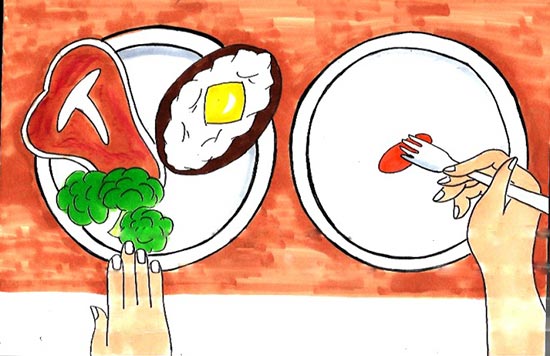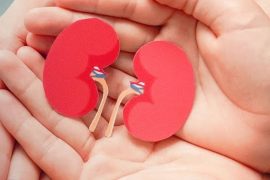We all love eating different types of food. But have you come across an eating disorder? They’re difficult mental health conditions that usually need the interference of medical and psychological experts to modify their course.
A study shows that the United States has an expected 20 million women and 10 million men have or had an eating disorder at some point in time in their life.
What are eating disorders?
Eating disorder is a series of psychological conditions that cause unhealthy eating habits to grow. They might begin with an obsession with body weight, food, or body shape. In cases, eating disorders can cause dangerous health consequences and may even lead to death if left untreated.
Those with eating disorders can witness a variety of symptoms. However, most involve the strict restriction of food, purging behaviors like vomiting or over-exercising, or food binges. Although eating disorders can attack people of any gender at any age, but the disorder is most often reported in adolescents and young women. Up to 13% of youth may undergo at least one eating disorder at 20.
Therefore, eating disorders are mental health conditions identified by an obsession with food, body weight, or body shape. They can affect anyone but are most common among young women.
What causes them?
Experts believe that there are a variety of factors that can cause eating disorders.
- Genetics: Twin and adoption studies, including twins divided at birth and adopted by different families, indicate that eating disorders may be inherited. If one twin acquires an eating disorder, the other has a 50% probability of catching one too, on average.
- Personality traits: In particular, perfectionism, neuroticism, and impulsivity are three personality characteristics often associated with a higher risk of acquiring an eating disorder.
- Other potential causes include observed pressures to be thin, media exposure supporting such goals, and cultural likings for thinness.
 Certain eating disorders develop to be often missing in cultures that haven’t been revealed to thinness Western ideals.
Certain eating disorders develop to be often missing in cultures that haven’t been revealed to thinness Western ideals.
That said, culturally believed goals of thinness are very present in many regions of the world. Yet, in some countries, several individuals end up acquiring an eating disorder. Thus, they are possibly caused by a combination of factors.
More recently, experts have suggested that abnormalities in brain structure and biology may also perform a role in growing eating disorders.
In particular, levels of the brain messengers serotonin and dopamine may be factors. However, more researches are required before firm conclusions can be made.
Several factors may cause summary Eating disorders. These include genetics, personality traits, brain biology, and cultural ideals.
How to cope up with eating disorders?
Eating disorders can cope up if you consistently follow the guidelines and become determined towards preventing the eating disorder. Here are some ways how can you cope up with an eating disorder:
- Eat healthily: Eat healthy food and have proper and nutritional diets. Do not overeat or skip your meals. Just have a balanced diet. Your meals should include fresh fruits and vegetables. Have sprouts and smoothies to make your diets more nutritious and full of vitamins and proteins.
- Exercise: Do not leave your exercise routine. Perform your exercise daily. Do the exercise as much as you can do, and that doesn’t harm you. Try yoga and jogging if you are not a fan of high-intensity workouts.
- Strong willpower: You should create strong willpower. Your willpower can lead you to achieve your goals. Stick to what you are supposed to do to cope up with your eating disorder.
- Stay motivated: Keep yourself motivated. Your determination and motivation can make you prevent your eating disorder.
- Cook healthy: Do not have junk food. Cook healthy and full of nutrients food at your home. Fresh and healthy food cooked at home will help you aid with your eating disorder.
- Drink more water: Drink an adequate amount of water. Keep yourself hydrated. Drink clean water.
- Keep healthy snacks handy: If you feel starving every hour, then keep healthy snacks with you ready to eat. Carry sprouts, fruits, and other items that can be consumed as your snacks when you feel hungry.
Disclaimer:
The information contained in this article is for educational and informational purposes only and is not intended as a health advice. We would ask you to consult a qualified professional or medical expert to gain additional knowledge before you choose to consume any product or perform any exercise.






